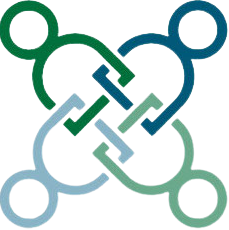
Keynote Speakers
Opening Keynote by Dr. Samantha Francois
Wednesday, October 25
Universities Redefining Service Learning and Community Engagement in a “Race Neutral” Milieu
In June 2023, the U.S. Supreme Court ruled race-conscious admissions at two universities to be unconstitutional, thereby paving the way for the elimination of affirmative action in college admissions nationally. What does this mean for academic institutions’ prioritization of equity, access, and inclusion? What does this mean for the intentionality of university’s research, service, and engagement with their geographic communities, particularly when those communities comprise racially and economically marginalized groups? This keynote will address how universities sustain and grow their research, service learning, and community engagement while recommitting to racial equity and inclusion in admissions and enrollment.
Samantha Francois, PhD is an Associate Professor of Psychology at Clark University. Her areas of expertise are in adolescent development, structural and neighborhood violence, and anti-racist research. As an interdisciplinary, community-engaged developmental scientist, Dr. Francois uses systems perspectives and critical race theory to understand the intersections of individual, community, and structural factors that impact development in Black and African American youth. She also conducted intervention research on youth-led activism and organizing as community and structural violence prevention strategies. Dr. Francois is a mixed methods researcher who uses community-based, participatory, and action research frameworks. She designs and executes research through an anti-racist and intersectional lens aimed at social transformation and community liberation. Dr. Francois was formerly executive director of Tulane University’s Violence Prevention Institute and co-director of the Center for Youth Equity, a CDC Center of Excellence in Youth Violence Prevention. Dr. Francois has a doctorate in psychological sciences from Tulane University and is a recipient of a 2022 IARSLCE Early Career Award.
Closing Keynote by Dr. Verónica Vélez
Friday, October 27
Centering Intergenerational Possibilities in Service Learning & Community Engagement: The Urgency of Abolition as Praxis
We are living in a moment when abolition has come to the fore in public discourse in an unprecedented way. As Karissa Lewis of Movement For Black Lives (M4BL) argues, we find ourselves in “a culmination of multiple storms converging...COVID-19, police violence, racial capitalism in crisis, [and] intensified white supremacy,” resulting in mass uprisings across the country and the world. Black abolitionists and those involved in M4BL, Dream Defenders, Critical Resistance, and many other collectives are working relentlessly to steer the conversation away from reform and instead “chart a new path forward” that demands an end to all systems of policing and a redirected focus on community care, accountability, and self-determination. While abolition has recently gained unthinkable mainstream appeal during this time, we know that this work has a long lineage emerging directly out of collective freedom struggles.
Abolitionist demands grapple with the interrelatedness of supposedly “distinct” struggles and issues. For example, “the prison” does not refer to a discrete institution; rather, the prison regime always exceeds its own materiality to also include the “fundamental organizing logic of the United States in its local, translocal and global enactments.” Within this framework, that which needs to be abolished is not simply the prison, but all that it stands for. Furthermore, abolition is as much about building up other institutions and social relations as it is about dismantling the obsolete ones. Abolition reminds us that getting rid of police and prisons means nothing if we do not abolish the ideologies, practices — and affective economies, and intimate ties of policing in our interpersonal relationships and communities. We must, in short, collectively transform the “intimate investments” within the prison-industrial-complex that come to saturate our very desires, relationships, and modes of relation to one another and ourselves.
In her talk, Vero will engage abolitionist demands to consider what needs to be dismantled and what needs to be built to cultivate reciprocity and generative engagement in our work and partnerships between campus and community. She will draw from her organizing work with migrant mothers in California and her most recent work with high school youth using Ethnic Studies to advance the J.O.Y (justice-oriented youth) lab that (re)imagines schooling by pivoting learning as a responsive praxis to community needs rather than state-sanctioned accountability structures. In the process, care becomes an intergenerational struggle toward the not yet, which she argues is necessary for “creating inclusive and accessible service-learning and community engagement opportunities at a time when educational institutions have needed to be adaptive and nimble to meet the needs of students and faculty.”
VERÓNICA (VERO) VÉLEZ, PhD (she/her/ella) is Professor and Associate Dean of Academic Affairs in Woodring College at Western Washington University. Her research broadly analyzes racial inequities in education, the causes of those inequities, and how they impact the educational trajectories and experiences of students of color, their families, and their communities. In addition to her scholarly work, Vero spent 15 years organizing with Latinx immigrant families on school reform efforts and adult literacy campaigns. She is currently collaborating with youth, teachers, administrators, and community members to develop Ethnic Studies in Bellingham Public Schools (BPS). Vero is the proud daughter of Latinx immigrant parents, whose journey to provide her with a quality education fundamentally inspires her work for social and racial justice.


